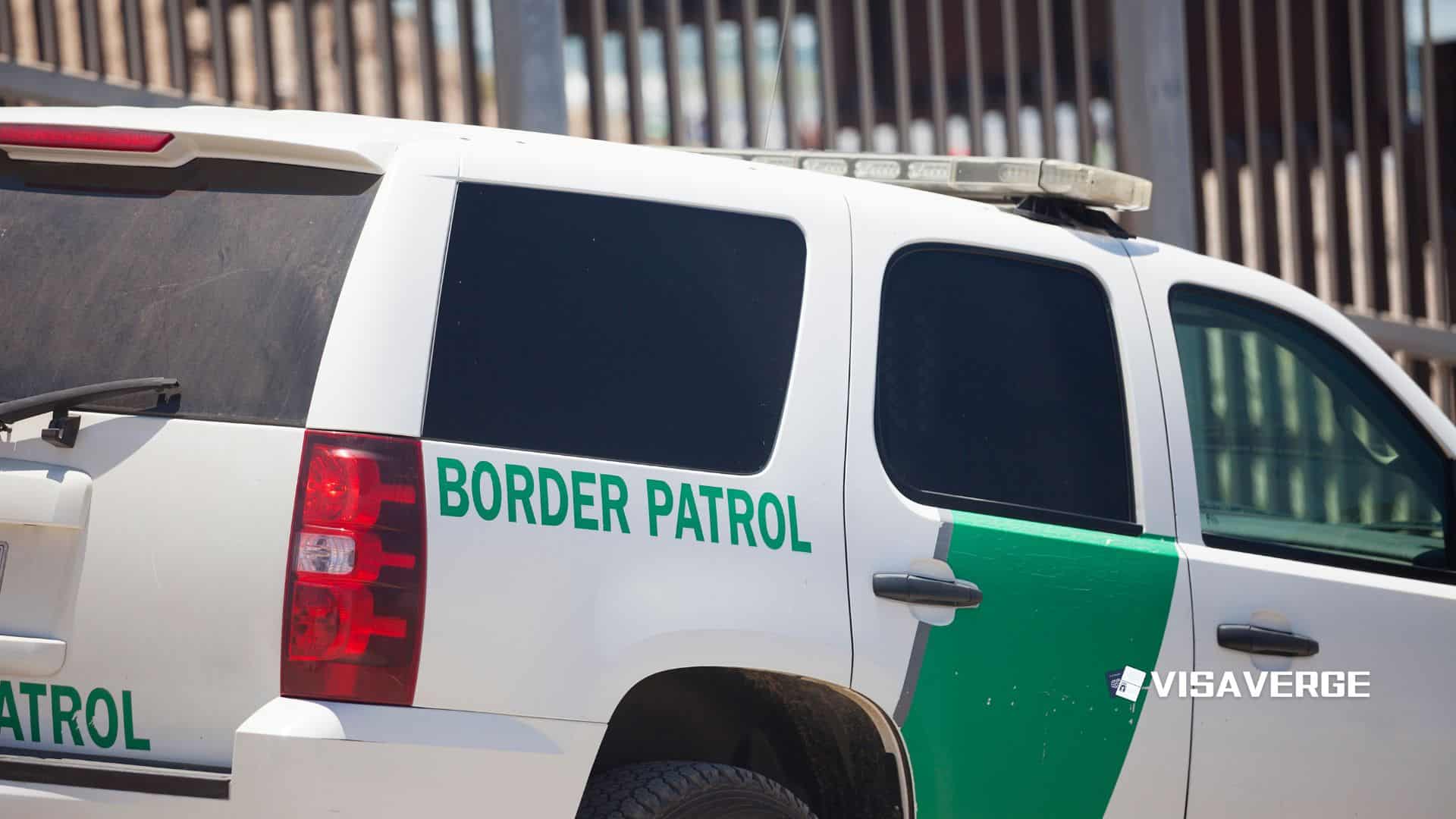Key Takeaways
• Pam Bondi denied prior knowledge of masked ICE agents during June 2025 Senate hearing.
• California Senate Bill 627 proposes banning masks for law enforcement except SWAT or medical reasons.
• DHS opposes SB 627 citing officer safety and increased risks of retaliation and doxxing.
On June 26, 2025, U.S. Attorney General Pam Bondi found herself at the center of a heated national debate after denying any prior knowledge that Immigration and Customs Enforcement (ICE) agents were wearing masks during recent immigration raids. This denial came during a widely watched Senate hearing, where lawmakers pressed Bondi for answers about the controversial practice. Video footage showing masked ICE agents in action had already spread across social media and news outlets, raising urgent questions about law enforcement transparency, officer safety, and the rights of immigrant communities.
The controversy has sparked new legislative efforts in California, where lawmakers have introduced Senate Bill 627 (SB 627) to ban most mask use by law enforcement, including ICE agents, except in specific cases like SWAT operations or for medical reasons. The debate has quickly become a flashpoint, drawing in federal officials, state lawmakers, immigrant advocates, and law enforcement agencies, each with strong and sometimes opposing views.

Senate Hearing Brings Masked ICE Raids Into National Spotlight
The issue came to a head during a Senate hearing on June 25–26, 2025. Senators questioned Pam Bondi directly about the use of masks by ICE agents. Despite clear video evidence showing agents with covered faces during recent raids, Bondi stated, “This is the first I’m hearing of it,” denying any prior knowledge of the practice. Her comments drew immediate reactions from both sides of the political aisle.
Senator Gary Peters (D-Mich.) challenged Bondi’s denial, arguing that the use of masks not only puts officers at risk but also endangers the people being detained. Peters pressed for greater transparency, saying, “When law enforcement officers hide their faces, it creates fear and confusion in our communities. People need to know who is enforcing the law.”
The hearing highlighted the growing divide between those who see mask use as a necessary safety measure for officers and those who believe it undermines public trust and accountability.
California’s Push for Transparency: Senate Bill 627
In response to the public outcry over masked ICE raids, California lawmakers introduced SB 627 on June 16, 2025. The bill would make it a misdemeanor for law enforcement officers—including ICE agents—to conceal their faces while on duty, except in specific situations such as SWAT operations or for medical reasons. The legislation also encourages officers to display visible identification on their uniforms, aiming to increase transparency and accountability.
Senator Scott Wiener (D-Calif.), a co-author of the bill, criticized the use of masks, saying, “When officers hide their faces, it creates the impression of secret police. That’s not how law enforcement should operate in a democracy.” Wiener even compared masked ICE agents to “Stormtroopers” from Star Wars, emphasizing the need for public accountability.
Senator Jesse Arreguín (D-Berkeley), another co-author and chair of the Senate Public Safety Committee, argued that visible identification is necessary to prevent impersonation and restore community trust. “People need to know that the person at their door is a legitimate officer, not someone pretending to be one,” Arreguín said.
If SB 627 becomes law, it would require:
- Law enforcement agencies to update uniform policies to prohibit face coverings, except for SWAT, medical, or health reasons.
- Officers to display identification on their uniforms during all operations.
- Violations to result in misdemeanor charges for individual officers.
- Agencies to provide training and monitor compliance with the new rules.
Federal Response: Safety Versus Accountability
The U.S. Department of Homeland Security (DHS), which oversees ICE, has strongly condemned the proposed California legislation. DHS officials argue that banning masks would put officers at greater risk of retaliation and doxxing—a term for publishing private information online to encourage harassment. DHS called the bill “despicable” and a direct threat to officer safety, vowing to prosecute anyone who targets ICE agents.
Senator Marsha Blackburn (R-Tenn.) also opposed the bill, citing a 413% increase in targeted attacks on ICE agents as justification for allowing them to conceal their identities. “Our officers are facing unprecedented threats,” Blackburn said during the Senate hearing. “We need to protect them, not make them more vulnerable.”
Supporters of the mask ban, however, argue that transparency is essential for public trust. They say that masked, unidentified officers resemble “secret police,” which undermines democratic accountability and increases fear in immigrant communities.
Impact on Immigrant Communities
For many immigrants and their families, the sight of masked ICE agents has caused fear and confusion. Community advocates report that some people cannot tell if the person at their door is a real officer or someone pretending to be one. This confusion can lead to dangerous situations, including people refusing to open their doors or calling for help when it may not be needed.
According to analysis from VisaVerge.com, the visibility of masked agents has also made it harder for community organizations to provide accurate information and support to those affected by raids. “When people don’t know who is enforcing the law, it erodes trust and makes it harder for us to help,” said one legal aid worker.
Proponents of SB 627 believe that banning masks will help restore trust between law enforcement and the communities they serve. They argue that clear identification will make it easier to hold officers accountable and discourage abuses of power.
Law Enforcement Concerns: Officer Safety and Operational Security
Law enforcement agencies, including ICE, argue that the ability to wear masks is a critical safety measure. They point to the sharp rise in targeted attacks and doxxing incidents as evidence that officers need to protect their identities. Without masks, they say, officers could become easy targets for retaliation by those they arrest or by organized criminal groups.
DHS officials have warned that the proposed mask ban could force officers to choose between their personal safety and their jobs. They also argue that the bill could hinder effective law enforcement by making it harder to carry out sensitive operations.
Some Republican senators, including Senator Marsha Blackburn, support giving officers the discretion to wear masks when they believe it is necessary for their safety. They argue that operational security should not be sacrificed for the sake of transparency alone.
Multiple Perspectives: A Deeply Divided Debate
The debate over mask use by ICE agents has exposed deep divisions among lawmakers, law enforcement agencies, immigrant advocates, and the public. The table below summarizes the main positions:
| Stakeholder | Position on Mask Use | Rationale/Concerns |
|---|---|---|
| California Lawmakers (D) | Oppose | Transparency, accountability, prevent impersonation |
| DHS/ICE | Support (for officer discretion) | Officer safety, retaliation, doxxing risks |
| Immigrant Advocates | Oppose | Fear, confusion, lack of trust in law enforcement |
| Some Republican Senators | Support (for officer discretion) | Surge in attacks on officers, operational security |
Historical Context: How Did We Get Here?
The use of masks by ICE agents during raids is not new, but it has become much more visible and controversial in recent years. Critics have long argued that covering officers’ faces erodes public trust and makes it harder to hold law enforcement accountable. Supporters, on the other hand, say that the risks to officers have grown, especially as immigration enforcement has become more politicized and contentious.
Previous efforts to improve law enforcement transparency have focused on body cameras and name tags. However, the issue of masks has taken on new urgency as videos of masked ICE agents conducting raids in California and other states have gone viral. These images have fueled calls for stricter rules on officer identification and greater oversight of immigration enforcement practices.
What Happens If SB 627 Becomes Law?
If California’s SB 627 passes, it would set new rules for law enforcement agencies across the state, including ICE agents operating within California. Here’s what would change:
- Uniform Policy Updates: Agencies would need to update their policies to ban face coverings, except for SWAT, medical, or health reasons.
- Visible Identification: Officers would be required to display their names or badge numbers on their uniforms at all times during operations.
- Enforcement and Penalties: Officers who violate the new rules could face misdemeanor charges, and agencies would be responsible for training and monitoring compliance.
- Community Impact: The law aims to make it easier for community members to identify legitimate officers and report any abuses or impersonation.
For more details on California’s legislative process and updates on SB 627, readers can visit the California State Legislature’s official website.
Federal-State Tensions: Legal and Political Challenges Ahead
The proposed mask ban in California is likely to face strong opposition from federal agencies, including DHS and ICE. There are already signs that the federal government may challenge the law in court, arguing that it interferes with federal authority over immigration enforcement and puts officers at risk.
Legal experts say that the outcome could set an important precedent for other states considering similar measures. If the courts uphold California’s right to regulate law enforcement identification, it could open the door for more states to pass their own rules. On the other hand, if the courts side with the federal government, it could limit states’ ability to set their own standards for law enforcement transparency.
Implications for Stakeholders
Law Enforcement Agencies
- Increased Transparency: Agencies would need to ensure that officers are easily identifiable during all operations.
- Training and Compliance: New training programs would be required to educate officers about the new rules and penalties for violations.
- Safety Concerns: Agencies would need to find new ways to protect officers from retaliation and doxxing without relying on masks.
Immigrant Communities
- Reduced Fear and Confusion: Clear identification could help community members feel safer and more confident in their interactions with law enforcement.
- Improved Trust: The law could help rebuild trust between immigrant communities and law enforcement agencies, making it easier to report crimes and seek help.
Lawmakers and Policy Makers
- Setting Precedents: The outcome of the debate in California could influence similar efforts in other states.
- Balancing Safety and Accountability: Lawmakers will need to weigh the risks to officer safety against the need for transparency and public trust.
The General Public
- Greater Accountability: The public would have more tools to hold law enforcement accountable for their actions.
- Potential for Legal Challenges: The debate could lead to lengthy court battles and further political polarization.
What Should Affected Individuals Do?
For those directly affected by ICE raids or concerned about law enforcement practices, there are several steps to take:
- Stay Informed: Follow updates from the California State Legislature and trusted news sources for the latest information on SB 627 and related policies.
- Know Your Rights: Community legal aid organizations can provide guidance on what to do if approached by law enforcement officers, including how to verify their identity.
- Report Concerns: If you suspect someone is impersonating a law enforcement officer, report it to local authorities or legal aid groups.
- Seek Support: Organizations that support immigrants can offer resources and assistance for those affected by raids or facing legal challenges.
Looking Ahead: What’s Next in the Debate?
California’s SB 627 is expected to face intense debate in the state legislature, with strong opposition from federal agencies and some lawmakers. If passed, the law could set a new standard for law enforcement transparency and accountability, not just in California but across the United States 🇺🇸. However, the federal government may challenge the law in court, leading to a potentially lengthy legal battle.
Ongoing Senate hearings and public scrutiny are likely to keep the issue in the spotlight, prompting further policy reviews at both the state and federal levels. The outcome will have important implications for law enforcement practices, immigrant communities, and the broader debate over the balance between safety and transparency.
Official Resources and Further Information
- California State Legislature: Updates on SB 627 and legislative proceedings
- U.S. Department of Homeland Security: Official statements and policy documents
- Senate Public Safety Committee: Hearing schedules and testimony records
- Community Legal Aid Organizations: Guidance and support for affected individuals
Conclusion
Pam Bondi’s denial of knowledge about masked ICE agents during raids has brought a long-simmering issue into sharp focus. The debate over mask use by law enforcement is about more than just uniforms—it’s about public trust, officer safety, and the rights of immigrant communities. As California lawmakers push for greater transparency with SB 627, the controversy is likely to shape immigration enforcement practices and legal standards for years to come. According to analysis by VisaVerge.com, the outcome will affect not only law enforcement agencies and immigrant communities but also the broader public’s confidence in the fairness and accountability of those sworn to uphold the law.
Learn Today
ICE → Immigration and Customs Enforcement, a U.S. federal agency enforcing immigration laws and conducting raids.
SB 627 → California Senate Bill proposing to ban face masks for law enforcement, with limited exceptions.
Doxxing → Publishing private information online to harass or threaten individuals, risking retaliation against officers.
SWAT → Special Weapons and Tactics, highly trained law enforcement units allowed to wear masks for special operations.
Misdemeanor → A lesser criminal offense; violation under SB 627 could lead to misdemeanor charges for officers.
This Article in a Nutshell
Pam Bondi’s denial of masked ICE agents brought national debate on transparency versus officer safety. California’s Senate Bill 627 aims to ban masks except for specific reasons, igniting federal opposition and highlighting immigrant community fears and law enforcement concerns over accountability and security.
— By VisaVerge.com













